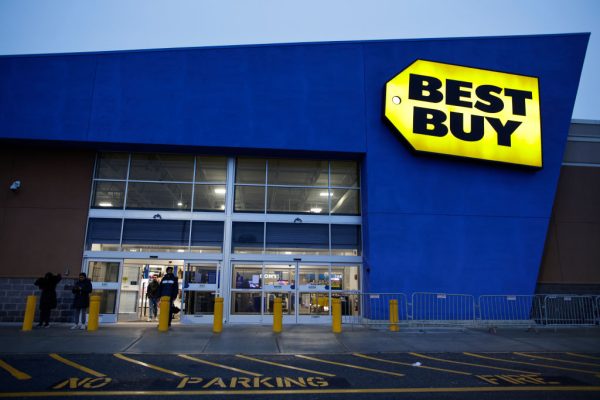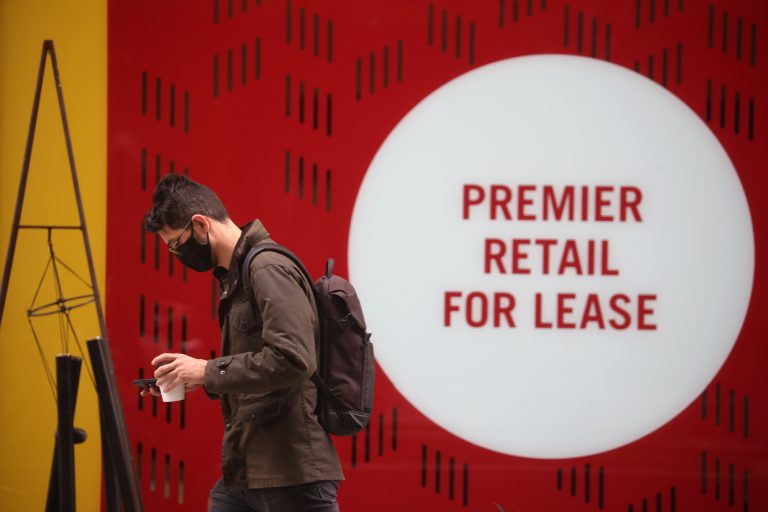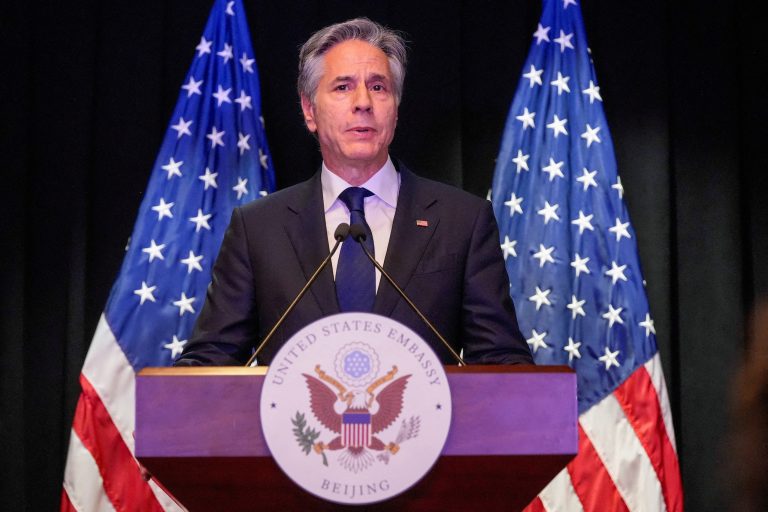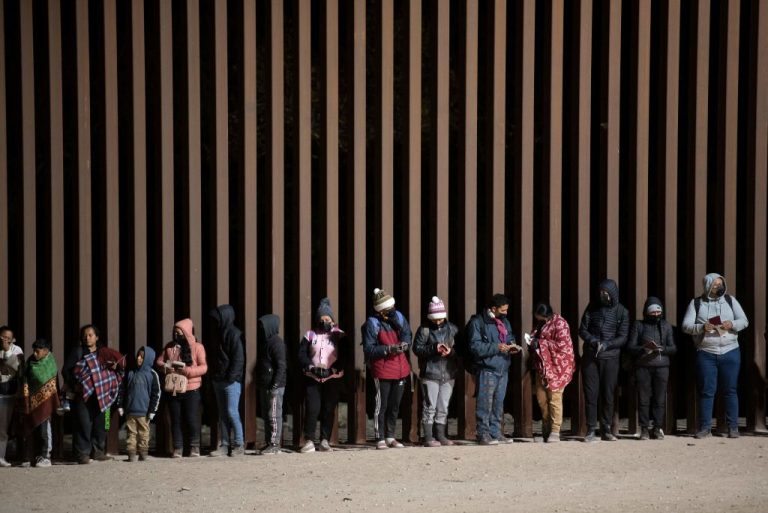A number of American retailers are grappling with a surge in retail theft where mobs of people descend on a location to strip it of its goods leaving stores in disarray and employees fearing for their safety. It’s become a nationwide problem, impacting cities from coast to coast, and is prompting some retailers to abandon locations altogether, leaving communities under served.
According to a report published by the National Retail Federation (NRF) in early April, “shoplifting and retail theft are at an epidemic level. Shoplifting is no longer an invisible act of concealing merchandise — brazen scofflaws are openly stealing from national retailers and local businesses.”
The NRF estimates that “retail shrink” — an industry term used to describe retail theft — cost American businesses $94.5 billion in losses in 2021 and organized retail crime incidents soared by 26.5 percent during the same time period, according to the NRF’s 2022 Retail Security Survey.
Last December, Walmart CEO Doug McMillon warned that theft has been surging and if it didn’t slow down, stores would have to close.
Subsequently the retailer decided to shut down 17 of its stores across nine states and most recently decided to close half of its Chicago locations because they were losing tens of millions each year.
Success
You are now signed up for our newsletter
Success
Check your email to complete sign up
The Chicago closures come just weeks after Walmart decided to shutter two other stores in Portland, Oregon due to significant losses.
Target recently revealed that it lost $400 million in profits last November because of organized gangs and shoplifters stealing merchandise and the company’s CFO is forecasting retail theft in its stores to soar to $600 million by year’s end.
The company has announced it will be closing four stores in three cities in the coming months.
Macy’s, a staple in American malls, plans to close 125 locations over the next three years as organized crime soars and profits plummet. Its CEO Jeff Gennette says the company is experiencing a rise in theft across all its stores. “These are crime levels we haven’t seen before,” he said according to the Daily Mail.
Corrie Barry, Best Buy’s CEO, says gangs of thieves are ransacking stores, stealing high-value products to resell at discounted prices.
“This is traumatizing for our associates and is unacceptable,” he told the Daily Mail, adding that, “We are doing everything we can to try to create [an] as safe as possible environment.”
Best Buy intends to close 20 “large format” stores this year and an additional 20 stores each year going forward.
READ MORE:
- Chaotic Scenes Unfold in Chicago After ‘Teen Takeover’ Descends on City’s Downtown
- 5 Murdered in Kentucky Old National Bank Shooting
- Biden Sides With Republicans on DC Crime Bill Struck Down by Democrats
‘Highly organized, structured criminal networks’
Jake Stauch, the director of product for Verkada, a security company, told Business Insider that some of the crime being experienced is by “highly organized, structured criminal networks, often involved in other crimes … Human trafficking is one, where in many instances they’ll work with individuals bringing immigrants over the border, and in order to pay their fees to get across the border, they’ll utilize them as boosters to steal merchandise.”
The crimes are putting retail workers at significant risk, with some losing their lives.
In early December last year an 83-year-old Home Depot employee died weeks after an alleged thief shoved him to the ground while making an escape and, last year, a Los Angeles Rite Aid employee was killed after attempting to stop a shoplifter from leaving the store.
Best Buy’s CEO, Corie Barry, in the company’s third-quarter-earnings call last November said, “This is a real issue that hurts and scares people,” adding that, “We are doing a number of things to protect our people and our customers, but you can see that pressure in our financials. And more importantly, frankly, you can see that pressure with our associates. This is traumatizing for our associates and is unacceptable.”

E-commerce partially to blame
Business leaders are pointing the finger at the rise of e-commerce for partially fueling the epidemic.
In many cases, stolen goods wind up for sale on e-commerce platforms, mixed in with legitimate third-party sellers.
Scott Glenn, Home Depot’s vice president of asset protection, told Insider last year, “Years ago. There was eBay, and that was it. Now there are probably 80 different large-scale online resellers out there, and not all of them have the same level of control and vetting.”
Proceeds from these platform sales have been linked to criminal enterprises involved in everything from drug dealing to human trafficking, according to the Retail Industry Leaders Association.
In conversation with NBC Nightly News, Tarick Sheppard, president of the Metro Organized Retail Crime Alliance and NYPD captain, said, “This money is used to buy weapons, this money is used to do the same thing that narcotics money is used to do.”
INFORM Consumers Act
Retailers are finding that store level efforts to deter thefts, like time-delay safes and locking up merchandise, are not resulting in limiting losses and are pushing for a federal crackdown on trafficked goods online in the hopes that it will bring the rate of thefts down.
Industry groups and dozens of retailers including Amazon, Home Depot, Lowe’s, Walmart, Target and Walgreens wrote a letter to Congress last October, pleading for Congress to pass legislation that would force online seller platforms to verify the identity of third-party sellers that sell high volumes of goods.
A bill, dubbed the INFORM Consumers Act, passed the U.S. House of Representatives in November, 2022 and is slated to take effect on June 27, this year.
The act targets high-volume third-party sellers that have conducted 200 or more discrete sales within a 12-month period amounting to $5,000 or more.
It forces online retailers to authenticate sellers by “collecting their government-issued ID, tax ID, bank account numbers, and contact information within 10 days of a seller meeting the revenue and transaction thresholds qualifying them as a high volume seller,” The National Law Review explained.
The act allows authorities to suspend seller accounts that do not comply with requests for information or disclosure, ensure sellers found on online marketplaces disclose their contact and identity information to consumers and “provide clear and conspicuous reporting mechanisms for consumers to report suspicious marketplace activity.”
















